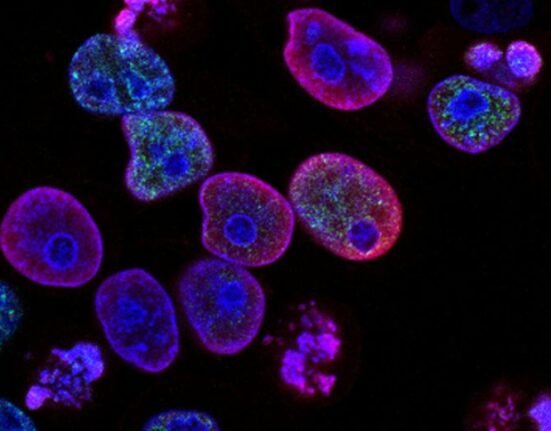HQ Team
February 2, 2023: Fizzy drinks, mass-produced breads, many ready meals, and most breakfast cereals increase the risk of cancer as they contain higher salt, fat, sugar and artificial additives, a UK study revealed.
Researchers from Imperial’s School of Public Health have produced a comprehensive assessment of the association between ultra-processed foods and the risk of developing cancers, such as ovarian and brain.
The ultra-processed foods are often relatively cheap, convenient, and heavily marketed as healthy options.
“It is now well documented that they are linked with a range of poor health outcomes including obesity, type 2 diabetes and cardiovascular disease,” according to the study done in collaboration with researchers from the International Agency for Research on Cancer (IARC), University of São Paulo, and NOVA University Lisbon.
Earlier research from the team reported the consumption levels of ultra-processed foods in the UK, which are the highest in Europe for both adults and children.
Type 2 diabetes, cardiovascular disease
The team also found that higher consumption of ultra-processed foods was associated with a greater risk of developing obesity and type 2 diabetes in UK adults and a more significant weight gain in UK children from childhood to young adulthood.
The study used UK Biobank records to collect information on the diets of 200,000 middle-aged adult participants. Researchers monitored participants’ health over ten years, looking at the risk of cancer overall and the specific risk of developing 34 types of cancer.
They also looked at the risk of people dying from cancer.
For every 10% increase in ultra-processed food in a person’s diet, there was an incidence of 2% for cancer overall and a 19% increase for ovarian cancer specifically.
Each 10% increase in ultra-processed food consumption was also associated with increased mortality for cancer overall by 6%, alongside a 16% increase for breast cancer and a 30% increase for ovarian cancer.
These factors remained after adjusting for various socio-economic, behavioural and dietary factors, such as smoking status, physical activity and body mass index.
Growing evidence
“This study adds to the growing evidence that ultra-processed foods are likely to negatively impact our health, including our risk for cancer. Given the high levels of consumption in UK adults and children, this has important implications for future health outcomes,” said Dr Eszter Vamos, lead senior author for the study, from Imperial College London’s School of Public Health.
“Although our study cannot prove causation, other available evidence shows that reducing ultra-processed foods in our diet could provide important health benefits. Further research is needed to confirm these findings and understand the best public health strategies to reduce the widespread presence and harms of ultra-processed foods in our diet.”
An average person in the UK consumes more than half of their daily energy intake from ultra-processed foods.
“This is exceptionally high and concerning as ultra-processed foods are produced with industrially derived ingredients and often use food additives to adjust colour, flavour, consistency, texture, or extend shelf life,” said Dr Kiara Chang, first author of the study, from Imperial College London’s School of Public Health.
“Our bodies may not react the same way to these ultra-processed ingredients and additives as to fresh and nutritious minimally processed foods.
“However, ultra-processed foods are everywhere and highly marketed with low prices and attractive packaging to promote consumption. This shows our food environment needs urgent reform to protect the population from ultra-processed foods.”
Varied consumption
Consumption of ultra-processed foods varies globally. In 2016, 271 kilograms of ultra-processed foods were sold per capita in North America and Australasia, compared with only 52 kilograms per capita in Africa, according to an article published in the BMJ.
Sales were falling or stagnating in the regions with the highest consumption —Western Europe, North America and Australasia- between 2002 and 2016. But sales of ultra-processed foods rose in all other areas—by a minimum of around 20% in the Latin and Caribbean region to a maximum of approximately 90% in South and South East Asia.
There are ongoing efforts to reduce ultra-processed food consumption worldwide, with countries such as Brazil, France and Canada issuing new national dietary guidelines with recommendations to limit such foods.
Brazil has also banned the marketing of ultra-processed foods in schools. There currently need to be similar measures to tackle ultra-processed foods in the UK.
Fat tax
The UK, Sweden, South Korea, Taiwan, Chile and Mexico have national policies that limit or prohibit junk food marketing and advertising from protecting children. Denmark was the first country in the world to introduce a fat tax on October 2011 to reduce the burden of cardiovascular disease.
Norway taxes sugary drinks and fast food and restricts its availability to children.
“We need clear front-of-pack warning labels for ultra-processed foods to aid consumer choices, and our sugar tax should be extended to cover ultra-processed fizzy drinks, fruit-based and milk-based drinks, as well as other ultra-processed products,” Dr Chang said.
“Lower income households are particularly vulnerable to these cheap and unhealthy ultra-processed foods. Minimally processed and freshly prepared meals should be subsidised to ensure everyone can access healthy, nutritious and affordable options.”








